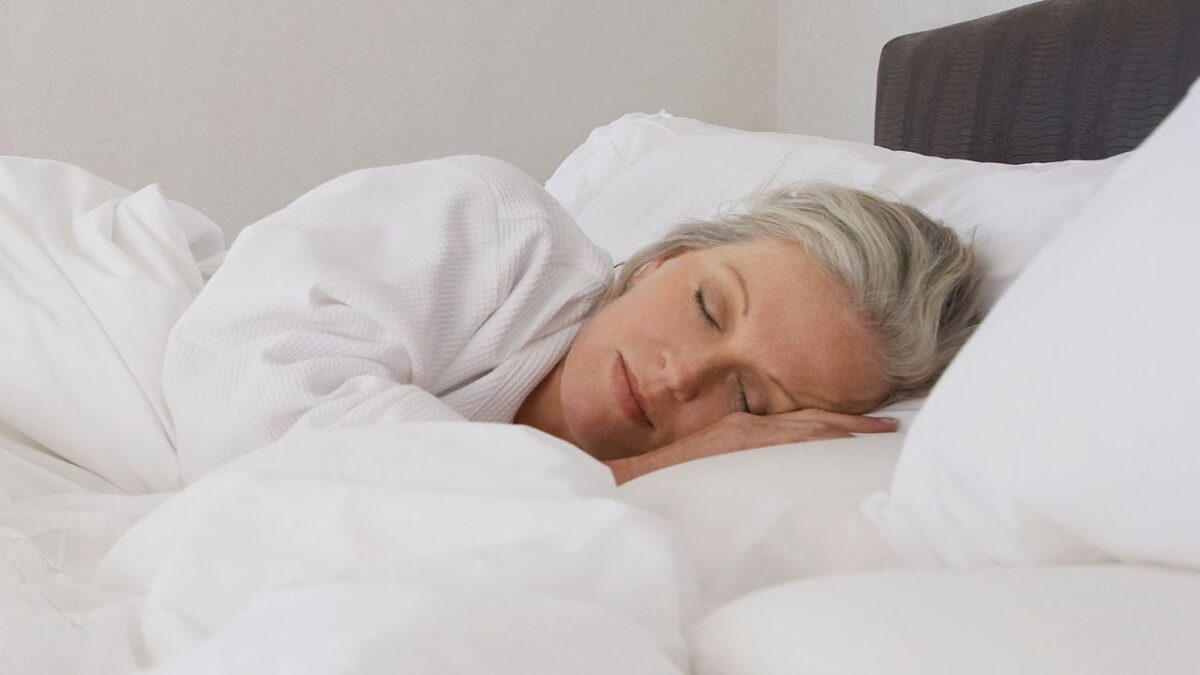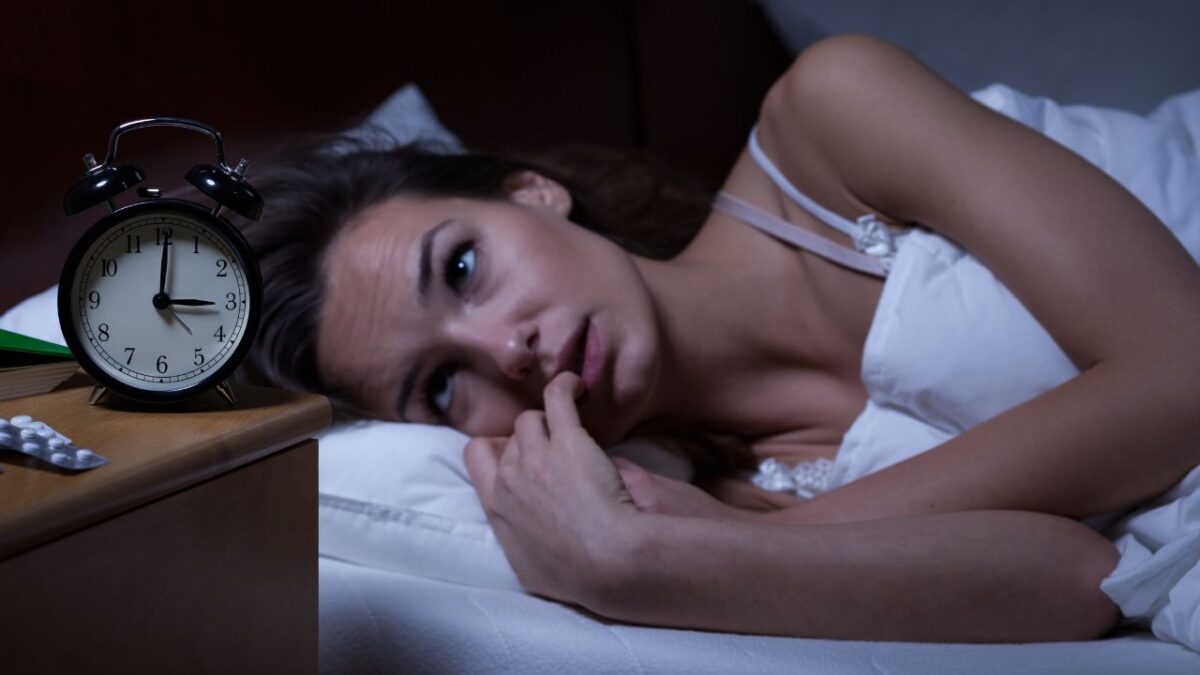One of the most common challenges faced during menopause is sleep disturbance. Hormonal fluctuations can disrupt the sleep cycle, leading to insomnia and reduced sleep quality. However, there’s a natural and effective way to combat these sleep issues: deep breathing and relaxation exercises.
In this blog, we’ll explore how these techniques can be a game-changer for women navigating the complexities of menopause.
The Impact of Menopause on Sleep
If you’re in your mid-30s or beyond, you might have started noticing some changes in your sleep patterns. It’s not just you; it’s a common thread among many women as they approach or go through menopause. Let’s take a moment to really understand what’s happening here.
Menopause isn’t just about the end of menstruation; it’s a whole shift in your body’s hormonal balance, and this can play havoc with your sleep. You might find yourself tossing and turning, struggling to drift off, or waking up in the middle of the night and not being able to get back to sleep. It’s frustrating, isn’t it?
But why does this happen?
During menopause, levels of estrogen and progesterone – hormones that help regulate sleep – fluctuate and eventually decrease. This can lead to a range of sleep disturbances. You might be familiar with some of them: difficulty falling asleep, staying asleep, or not feeling rested even after a full night’s sleep.
Then there are the hot flashes and night sweats. If you’ve ever woken up feeling like you’re in a sauna, you know what I’m talking about. These sudden waves of heat can be intense and uncomfortable, disrupting your sleep and making it hard to get back to that peaceful slumber.
And let’s not forget the emotional rollercoaster. Stress, anxiety, and mood swings aren’t just daytime issues; they can creep into your nights as well, making it harder to relax and fall asleep.
The impact of poor sleep goes beyond just feeling tired the next day. It can affect your mood, energy levels, and even your long-term health. Chronic sleep deprivation has been linked to a higher risk of conditions like heart disease and diabetes.
So, what can you do about it? That’s where we start exploring some natural and effective strategies to help you get the restful sleep you deserve. Spoiler alert: it involves some simple yet powerful breathing and relaxation exercises. Stay tuned, and let’s dive into how you can reclaim your nights and enjoy peaceful, restorative sleep.
The Power of Deep Breathing
Now, let’s talk about a superpower you already possess but might not be using to its full potential – deep breathing. It’s easy to overlook something as simple as breathing, but when it comes to improving sleep during menopause, this natural tool is a game-changer.
Deep breathing goes beyond the automatic inhale-exhale we do every moment. It’s a conscious, deliberate process that taps into your body’s natural ability to relax. When you breathe deeply, you’re doing more than just filling your lungs with air; you’re sending a message to your brain to calm down and relax. This is crucial, especially when your mind is racing with thoughts at night.
Here’s the science bit: deep breathing activates what’s known as the body’s “relaxation response.” This response is essentially the opposite of the stress response – that fight-or-flight sensation that can keep you awake and anxious. When you breathe deeply, you’re telling your body it’s okay to relax and unwind. This can be incredibly beneficial if you’re dealing with night sweats or anxiety that disrupts your sleep.
How Does It Help with Sleep?
When you engage in deep breathing exercises, you’re doing a few things that are beneficial for sleep:
- Reducing Stress: By lowering stress levels, deep breathing helps create a more conducive state for sleep.
- Regulating the Heart Rate: Deep breathing can help slow down your heart rate, making it easier to drift into sleep.
- Oxygen Flow: More oxygen means better blood flow and a calmer nervous system, setting the stage for a good night’s rest.
- Mindfulness: This practice also encourages mindfulness, which can be a powerful tool in quieting the mind and easing into sleep.
A Simple Practice with Profound Effects
The beauty of deep breathing is its simplicity. You don’t need any special equipment or a lot of time. It’s about taking a few minutes before bed to focus on your breath, allowing the inhales and exhales to become deeper and more rhythmic. This simple act can make a significant difference in the quality of your sleep.
In the next section, we’ll explore some specific deep breathing techniques that you can easily incorporate into your nightly routine. These aren’t just theoretical ideas; they’re practical tools that countless women have found helpful in navigating the sleep challenges of menopause. Stay tuned, and let’s unlock the power of your breath together.
The 4-7-8 Breathing Technique
One effective method is the 4-7-8 breathing technique, developed by Dr. Andrew Weil. It’s simple:
- Exhale completely through your mouth, making a whoosh sound.
- Close your mouth and inhale quietly through your nose to a mental count of four.
- Hold your breath for a count of seven.
- Exhale completely through your mouth, making a whoosh sound to a count of eight.
This cycle is repeated three more times. This technique helps reduce anxiety and prepares the body for sleep.
Relaxation Exercises for Better Sleep
Relaxation exercises are another key strategy. They can range from guided imagery to progressive muscle relaxation, which involves tensing and then relaxing different muscle groups in the body.
Gentle Stretching
Incorporating gentle stretching exercises before bed can also be beneficial. Yoga poses like Child’s Pose, Legs-Up-The-Wall, or gentle spinal twists can release physical tension and promote relaxation.
Creating a Bedtime Ritual
Consistency is key. Incorporating deep breathing and relaxation exercises into a nightly routine signals to your body that it’s time to wind down. Dimming the lights, turning off electronic devices, and perhaps adding some calming music or aromatherapy can enhance this ritual, creating an ideal environment for restful sleep.
Recap: Menopause is a natural part of aging, but it doesn’t have to mean the end of restful nights. By incorporating deep breathing and relaxation exercises into your nightly routine, you can significantly improve your sleep quality. These techniques are simple, non-invasive, and can be a comforting self-care practice during a time of change. Remember, if sleep disturbances continue to be a significant issue, it’s important to consult with a healthcare provider for further guidance and support.
Embrace these practices and rediscover the restful sleep that supports your overall well-being during menopause and beyond.




